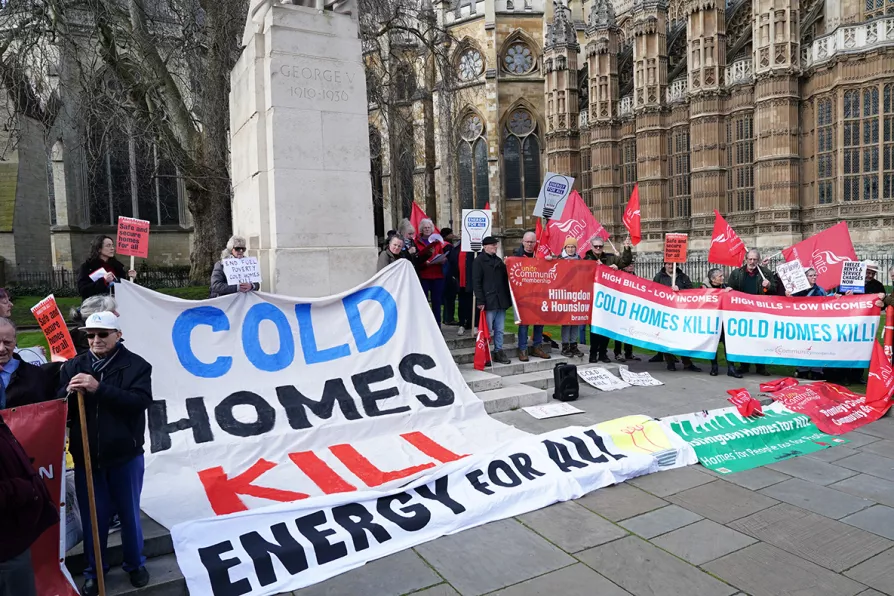John Wojcik pays tribute to a black US activist who spent six decades at the forefront of struggles for voting rights, economic justice and peace – reshaping US politics and inspiring movements worldwide
We can act now to hold down fuel prices this winter
JON TRICKETT MP says the tools already exist to stop price-gouging by the energy fat cats

 Protesters during an energy protest outside the Palace of Westminster, as the Chancellor of the Exchequer Jeremy Hunt delivers his Budget to Parliament, March 6, 2024
Protesters during an energy protest outside the Palace of Westminster, as the Chancellor of the Exchequer Jeremy Hunt delivers his Budget to Parliament, March 6, 2024
THIS winter, many British people will be shivering in their homes. For others the cold will cause severe illness and avoidable death.
There is a simple answer to fuel poverty. Let the energy giants pay. Their profits are enormous because their prices are too high. Exploitative pricing and low corporate taxes ought to be the subject of action by the government.
A recent note from the House of Commons Library says the following: “The charity National Energy Action (NEA) has estimated that the total number of UK households in fuel poverty increased from around 4.5 million in October 2021 to 6.7 million in October 2022. Their latest estimate is 5.6 million for January 2024.”
Similar stories

Energy giants rake in half a trillion pounds out of people’s misery, campaigners warn

For Britain, direct military aid is just the tip of the iceberg compared to the spiralling energy crisis that has fueled inflation, driven millions into fuel poverty and inflated corporate profits, reveals HELEN MERCER











